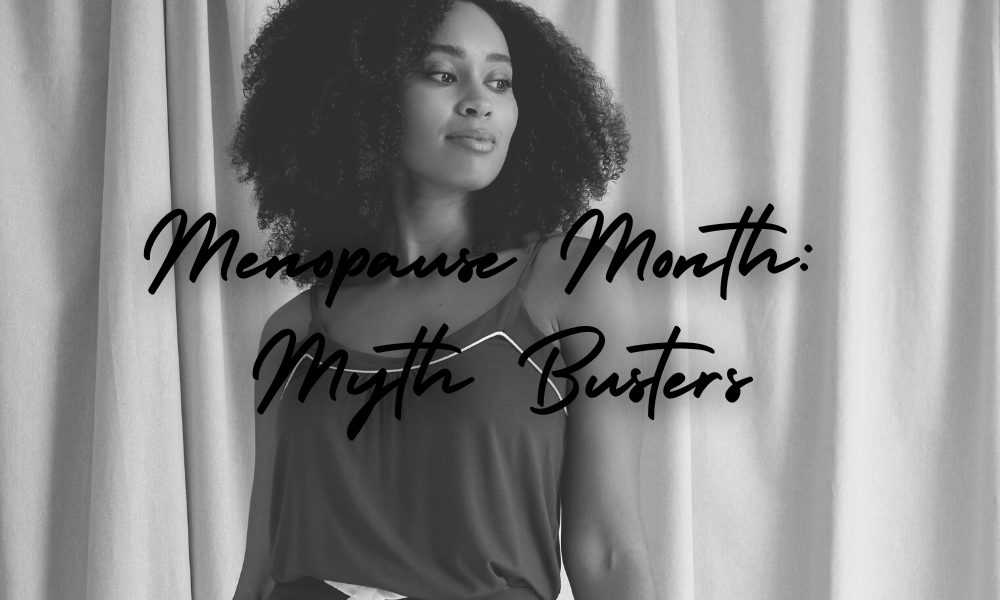Menopause is often shrouded in myths and misconceptions. It's a natural process in a woman’s life that is rife with misunderstandings, stereotypes, and misinformation. In this blog, we'll unravel some of the most common myths surrounding menopause and provide you with a clearer understanding of this important phase.
Myth #1: Menopause Happens Suddenly
One of the most common misconceptions about menopause is that it occurs suddenly. In reality, menopause is a gradual process that can span several years. It begins with perimenopause, which can start in the late 30s or early 40s, and can last for a decade before menopause officially begins. During this time, hormone levels fluctuate, leading to various symptoms, but it's not an overnight occurrence.
Myth #2: Menopause Means the End of Sexual Desire
Another myth about menopause is that it signals the end of a woman's sexual desire. While hormone fluctuations can affect libido, many women continue to enjoy a fulfilling sex life during, and after, menopause. Communication, understanding, and seeking professional advice can help address any concerns related to sexual health during this time.
Myth #3: Only Women in Their 50s Experience Menopause
Menopause is often associated with women in their 50s, but it can happen at different ages. Some women experience menopause in their late 40s, while others may undergo it earlier due to factors like genetics, surgery, or certain medical conditions. It's essential to understand that menopause is a highly individualised experience.
Myth #4: All Menopause Symptoms Are Severe
It's a common belief that menopausal symptoms are always severe, but that's not the case for every woman. While some women may experience intense symptoms, others may go through menopause with only mild discomfort. The variety and intensity of symptoms can vary widely from person to person.
Myth #5: Hormone Replacement Therapy (HRT) Is the Only Solution
Hormone Replacement Therapy (HRT) is a treatment option that can alleviate some menopausal symptoms. However, it's not the only solution. Women can manage their menopause symptoms through lifestyle changes, dietary adjustments, and other alternative therapies. The choice to use HRT should be made in consultation with a healthcare provider, weighing the potential risks and benefits.
Myth #6: Menopause Is a Sign of Old Age
Menopause is not synonymous with old age. While it typically occurs in middle age, it doesn't mean that women are suddenly "old." Many women lead vibrant and active lives during and after menopause, pursuing new goals, hobbies, and adventures.
Myth #7: Menopause Affects Only Women
While menopause is a biological process specific to women, it can indirectly affect their partners, families, and friends. Understanding and supporting women during this transitional phase can be essential for maintaining healthy relationships and emotional well-being.
Dispelling the myths and misconceptions surrounding menopause is vital to promote a more accurate understanding of it. By recognising that menopause is an individualised experience with various factors at play, we can better support women as they navigate this significant life transition. Understanding that menopause is not the end but a new beginning can empower women to embrace this phase with confidence and grace.
Share
Read more

Menopause Month: Reading & Listening List
Menopause is often shrouded in misconceptions and questions. Fortunately, there are numerous books, podcasts, and blogs that can provide insight, guidance, and support during this journey. In this ...

World Menopause Day: Empowering Words of Wisdom
Today is World Menopause Day. Menopause comes with its unique challenges and transformations, but it's also a time when women can draw upon their inner strength and wisdom. To celebrate today, w...


Leave a comment
All comments are moderated before being published.
This site is protected by hCaptcha and the hCaptcha Privacy Policy and Terms of Service apply.